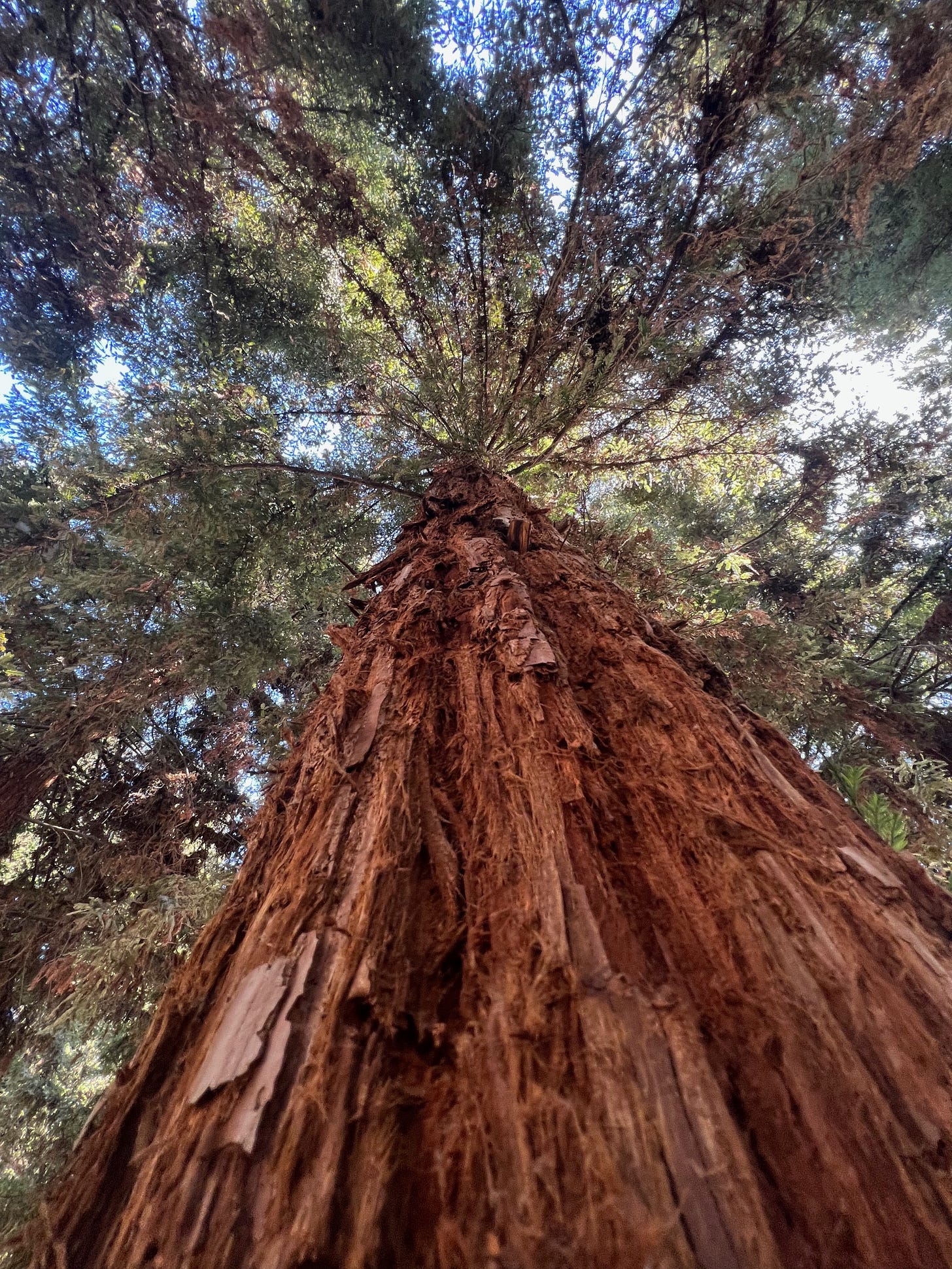A Room Called Remember
On grieving the death of a spiritual giant—St. Freddy of Rupert—and the solace of a magical Redwood forest of someday-giants that shouldn't be but is.
“Here is the world. Beautiful and terrible things will happen. Don't be afraid.”
—Frederick Buechner
As I rounded a bend in the dusty, arid trail late Monday afternoon, feeling the full force of a relentless August sun bearing down on me even through my allegedly-SPF-blocking felt…




